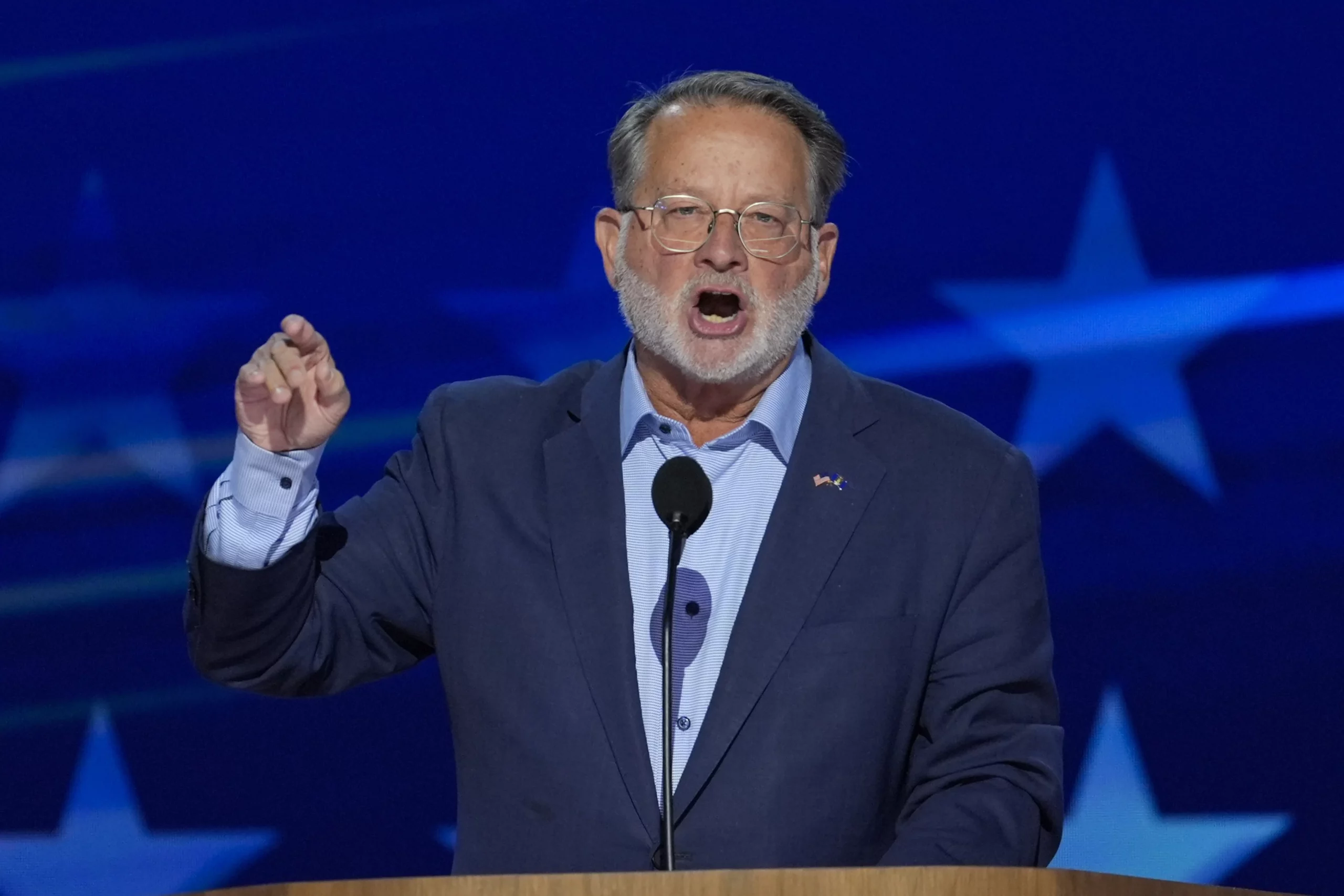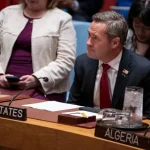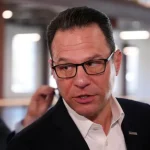

“We know the same dynamics as people get to know Kamala. She is doing extremely well,” Peters said, speaking to reporters Thursday morning at a press conference discussing the state of the Senate races. “When you look at all the Senate races, there are still large amounts of undecideds. They are starting to close, but a lot of voters make their decisions fairly late.”
.@SenGaryPeters is downplaying the significance of Montana polls: “Our polling still shows we’re in a good place, but you’ll see other polling that people will look at but I’m just going to warn folks, it is really hard to poll in Montana.” pic.twitter.com/kk8aAEPiAS
— Samantha-Jo Roth (@SamanthaJoRoth) September 26, 2024
DSCC goes on offense in Florida and Texas
The DSCC announced Thursday it would include Florida and Texas in a “multimillion-dollar” push to fund television ads on behalf of former Rep. Debbie Mucarsel-Powell (D-FL), who is challenging incumbent Sen. Rick Scott (R-FL), and Rep. Colin Allred (D-TX), who is challenging Sen. Ted Cruz (R-TX). Democrats had already been signaling they were considering expanding the field with these races.
“It’s not unusual to have cash coming in at the end. We’re in a good place right now because there’s just so much enthusiasm for Kamala Harris in this race, and it’s helping our Senate races,” Peters said.
The Michigan senator vowed the new spending would not take funding away from “must-hold races,” such as in Montana, where incumbent Sen. Jon Tester (D-MT) is lagging behind his Republican challenger.
“There is no world that you can conceive of — that I’m not going to be in Montana until the very end. Jon Tester will have everything that he needs to win,” Peters said.
Peters declined to go into more detail on the cash infusion into races in the two states for “strategic purposes.” However, the DSCC has placed $54 million in ad spending reservations across the country so far this year, with top investments in Michigan, Pennsylvania, and Wisconsin.
Democratic groups have spent $7 million in Florida this cycle compared to Republicans’ nearly $16 million, according to data from AdImpact, an ad-tracking company. Mucarsel-Powell’s campaign has spent the majority of that funding, which is about $6.6 million, and Scott’s campaign spent $12.6 million. According to Thursday AdImpact data, Democratic groups have reserved $1.2 million for future ads this cycle, compared to $384,000 from Republicans.
In the Texas Senate race, Democrats have spent $49 million, with most of the funding coming from the Allred campaign. In comparison, Republicans have spent nearly $18 million, according to data from AdImpact. As of Thursday, Republicans had $18.4 million booked in future reservations, with the majority coming from the Cruz campaign, compared with $1.8 million from Democrats.
Peters suggested some of the new funding for the initiates in Texas and Florida came from the Harris campaign, which contributed $10 million in early September, CNN reported.
“Obviously, all the money that comes in is helpful — it was nice to get that money coming in,” he said in response to a question specifically asking about the Harris campaign contribution.
The Senate state of play
Senate Democrats hold a 51-seat advantage, but the map will become difficult with the retirement of Sen. Joe Manchin (I-WV). Originally, Democrats planned to defend eight Democratic-held seats seen as the most competitive. An eight-for-eight performance would still leave the Senate deadlocked at a 50-50 majority, which could allow Democrats to keep their majority if Harris wins the White House. However, things get more difficult if Tester loses his seat.
Behind the scenes, Democrats on Capitol Hill and on K Street had been lobbying the Senate Democratic campaign arm to get involved in these races after looking at polling.
A RealClearPolitics polling average shows Scott currently leading his challenger, Mucarsel-Powell, by 4.3 points. Meanwhile, Cruz is leading Allred by 5 points.
“The numbers in Texas and Florida, the head-to-head numbers, have been pretty consistent for a long time,” said Jon Reinish, a Democratic strategist based in New York City. “If the numbers are what they are, and they’ve been consistent for six to nine months, it probably makes sense in the final five weeks of the race to put some money in. I think it’s an intelligent thing to do. Maybe it moves the needle.”
Nebraska Senate race becomes a wildcard
As Democrats look to expand the map, an unlikely Senate race in deep-red Nebraska is getting attention after incumbent Sen. Deb Fischer (R-NE) appeared to be in a much closer-than-anticipated race with independent candidate Dan Osborn. Fischer led by just 1 point in a SurveyUSA/Split Ticket poll taken late last month, while a survey sponsored by Osborn’s campaign showed him up 1 point.
The National Republican Senatorial Committee placed a $172,000 ad buy for Fischer’s campaign in Nebraska on Thursday, according to AdImpact.
“The NRSC will help Trump-endorsed Deb Fischer fight back against the left-wing smear campaign national Democrats are waging against her,” NRSC spokesman Mike Berg said in a statement to the Washington Examiner.
Peters declined to weigh in on Osborn’s challenge to Fischer, claiming he’s not paying attention to Nebraska.
“I’ve got a lot on my plate right now. I’ve got a lot of states that I’m watching,” Peters said. “We don’t have a Democrat in Nebraska, so I’m not involved.”
CLICK HERE TO READ MORE FROM THE WASHINGTON EXAMINER
However, Reinish thinks that making some investments in Nebraska could bode well for Democrats.
“If the national party has the financial resources to be creative, go and be creative, be strategic, and at the very least forcing the Republicans to spend in seats that they considered safe up until a few minutes ago is a good sign,” he said.





